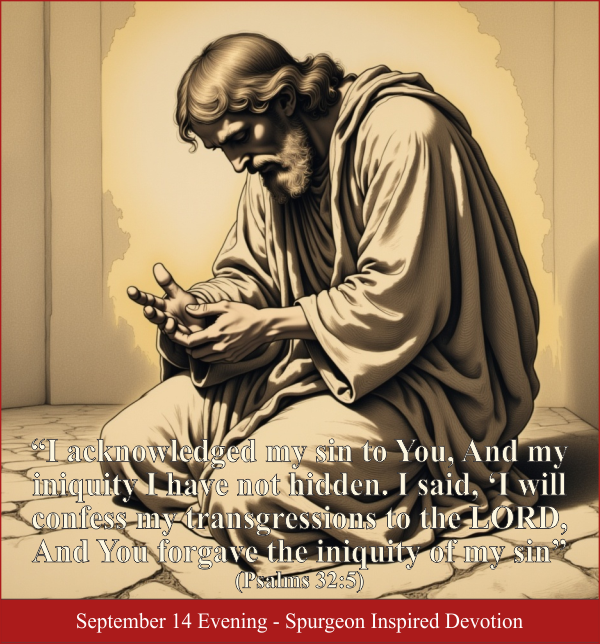“I acknowledged my sin to You, And my iniquity I have not hidden. I said, ‘I will confess my transgressions to the LORD,’ And You forgave the iniquity of my sin” (Psalms 32:5)
David’s grief for sin was bitter. The only way to restore his relationship with God was unconditional surrender. He tells us, “do not be like the horse or like the mule, Which have no understanding, Which must be harnessed with bit and bridle, Else they will not come near you. Many sorrows shall be to the wicked; But he who trusts in the LORD, mercy shall surround him” (Psalms 32:9–10).
Until he made a full confession before the throne of grace, he kept silent, and his heart became more and more filled with grief. He made excuses; he tried to ignore his conscience, but it didn’t work. Like a festering sore, his anguish increased, and he couldn’t rest. At last it came to this, that he must return unto his God in humble submission, or die outright; so he threw himself at the feet of God, and poured out his iniquities before the One who knows everything.
Having done this, a work so simple and yet so difficult because of pride, he was received immediately; the bones which were broken rejoiced, and he rose to sing the song of the redeemed.
Don’t hesitate to confess your sins! It’s to be prized above all price, for in every case where there’s genuine repentance, mercy is freely given, not because we deserve it, but for Christ’s sake. Blessed be God, there’s always healing for the broken heart; the fountain is ever flowing to cleanse us from sins.
“For we do not have a High Priest who cannot sympathize with our weaknesses, but was in all points tempted as we are, yet without sin. Let us therefore come boldly to the throne of grace, that we may obtain mercy and find grace to help in time of need” (Hebrews 4:15–15).
|

